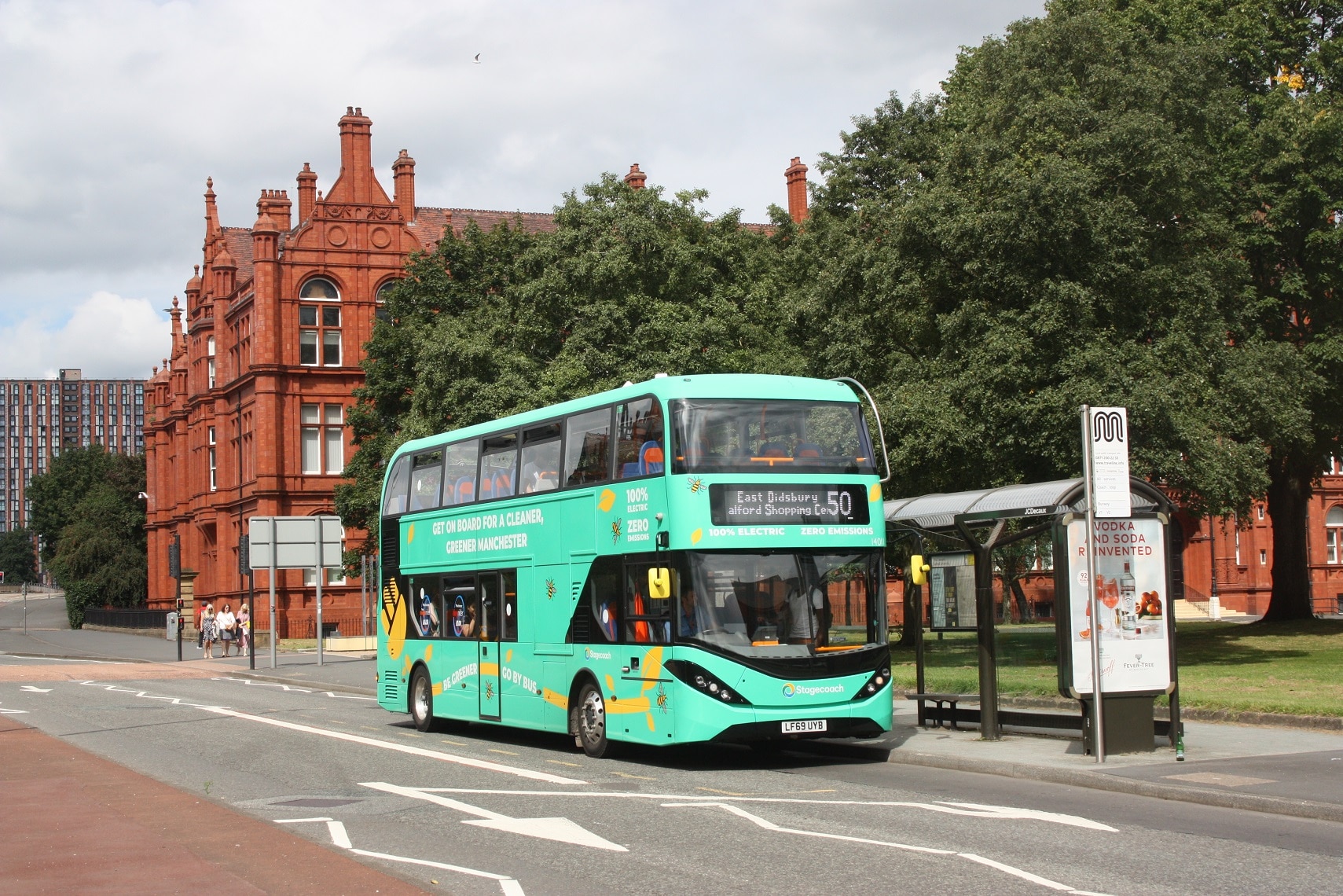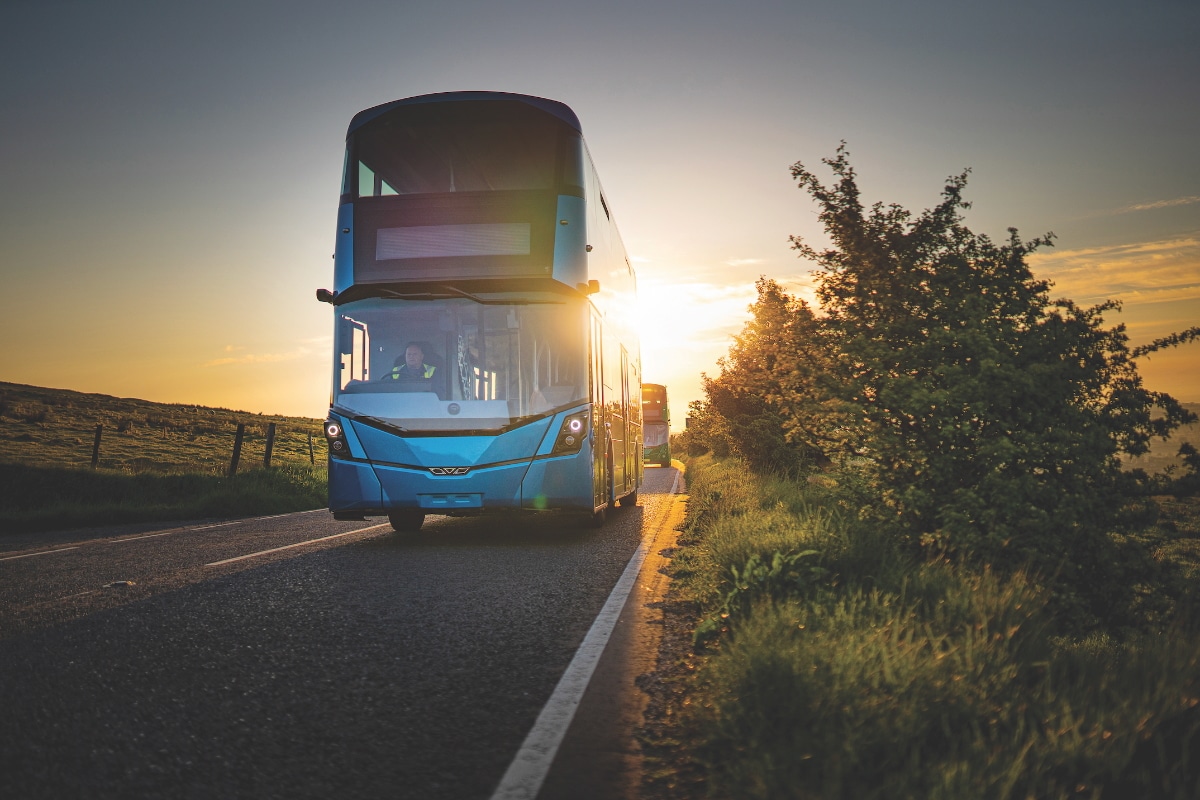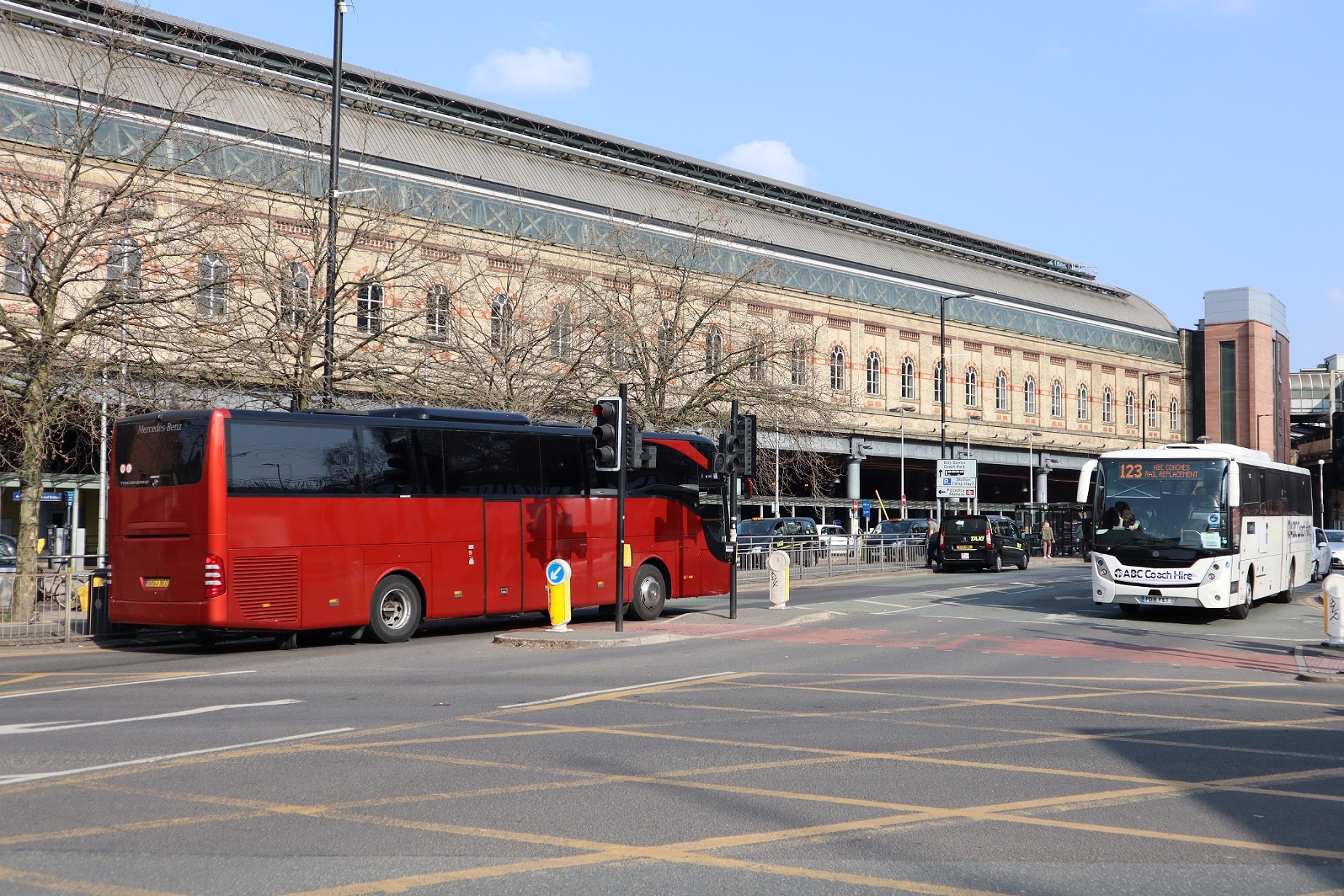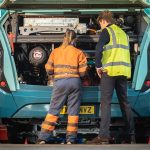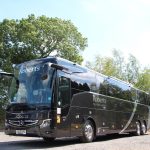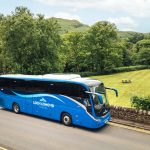Please note that since publication of this article, Arrival has left the UK bus market and orders via the ZEBRA standard track attributed to that manufacturer will be fulfilled by other OEMs.
12 of the 18 business case submissions to the Zero Emission Bus Regional Areas (ZEBRA) scheme in England via its standard track mechanism will receive a collective £198m of funding towards 943 battery-electric and hydrogen fuel cell-electric vehicles and associated infrastructure.
The money complements over £70m awarded in 2021 to five local authorities in England through ZEBRA’s fast track process, supporting the delivery of 335 zero-emission buses. The Department for Transport (DfT) says “the first orders have already been placed” for vehicles procured via ZEBRA, adding that the latest awards leave the government “on track to deliver its commitment to fund a total of 4,000 zero-emission buses” across England.
Largest of the successful bids in the second tranche is from Greater Manchester Combined Authority (GMCA). It will see DfT provide £36.9m towards to procurement of 170 battery-electric buses by Q1 2024. They will replace the current fleet operated by Stagecoach Manchester from its Stockport depot. The operator will construct a new base in the town to house those buses and contribute approximately £37.2m to the project. GMCA will provide £12.5m.
Smallest of the funded bids is from Norfolk County Council. It has been awarded £3.3m of ZEBRA money towards 15 battery-electric single-deckers that will be operated by First Eastern Counties in Norwich. They are slated to enter service in Q1 2024. The operator will contribute £3.6m.
Ordered by vehicle number, the other 10 successful bids are:
- Oxfordshire County Council: £32.8m towards 159 battery-electric buses. They will be a mix of double- and single-deckers and be operated within Oxford City Centre and its hinterlands by Oxford Bus Company and Stagecoach Oxford. Those operators will contribute £43.7m
- West Midlands Combined Authority (WMCA): £30m towards 124 hydrogen fuel cell-electric buses. 100 of those will be double-deckers and 24 will be articulated examples for the Sprint bus rapid transit route between Walsall and Solihull
- Blackpool Council: £19.6m towards 115 battery-electric buses (57 double-deck, 58 single-deck) for operation by Blackpool Transport on its Palladium-branded services. Other funding will come via a Blackpool Council loan and the sale of existing Euro VI stock
- West Yorkshire Combined Authority: £23.1m towards 111 battery-electric buses. Of those, 47 will be double-deckers for Arriva Yorkshire, while First West Yorkshire and Transdev Blazefield will each receive 32 single-deckers. Those operators and WYCA will collectively provide £34.5m of funding towards the project
- Nottingham City Council: £15.2m towards 78 battery-electric single-deckers for Nottingham City Transport (NCT). They will replace the operator’s existing single-deck fleet in its entirety. NCT will make an undisclosed financial contribution. 12 of the buses will be 12m and 66 will be approximately 10.8m
- York City Council: £8.5m towards 44 battery-electric single-deckers to be operated by First York. The operator will contribute £10.5m. The buses are planned to be manufactured by Arrival, although a second OEM is in hand as a back-up
- North Yorkshire County Council: £7.8m towards 39 battery-electric buses to be operated by Transdev Blazefield. 20 will be single-deckers and 19 will be double-deckers. 10 of the single-deckers and all the double-deckers will have opportunity charging. The latter vehicles will convert route 36 between Leeds, Harrogate and Ripon to zero-emission operation and will be required to cover up to 350 miles per day. Transdev Blazefield will provide £13.3m
- Portsmouth City Council as lead bidder: £6.4m towards 34 Arrival battery-electric single-deckers that will be operated by First Hampshire and Dorset. First will provide around £7.9m of funding. The buses are expected to be in service by the end of March 2024
- South Yorkshire Mayoral Combined Authority: £8.4m towards 27 battery-electric single-deckers. 23 will be 12m examples for Stagecoach Yorkshire at its Rawmarsh depot in Rotherham. The operator will contribute an undisclosed amount. Four will be 9.5-10m vehicles for use on a new city centre shuttle service in Sheffield. Pantograph opportunity charging equipment in Rotherham bus station forms part of the project
- Hertfordshire County Council: Approximately £6m toward 27 battery-electric single-deckers for operation by Arriva Herts and Essex in Stevenage. Arriva will contribute an undisclosed amount to the scheme.
Each successful bid includes funding towards infrastructure associated with the vehicles. The funding awarded to WMCA is significantly less than contained in its first business case, which was submitted via the earlier fast track mechanism. That called for £54.9m towards 231 buses, of which 224 were to be hydrogen fuel cell-electric and the remainder battery-electric.
Six expressions of interest that proceeded to the business case submission stage have not been funded. Those involve Liverpool City Region Combined Authority, Southampton City Council, Swindon Borough Council, Tees Valley Combined Authority, Transport North East and Worcestershire County Council.
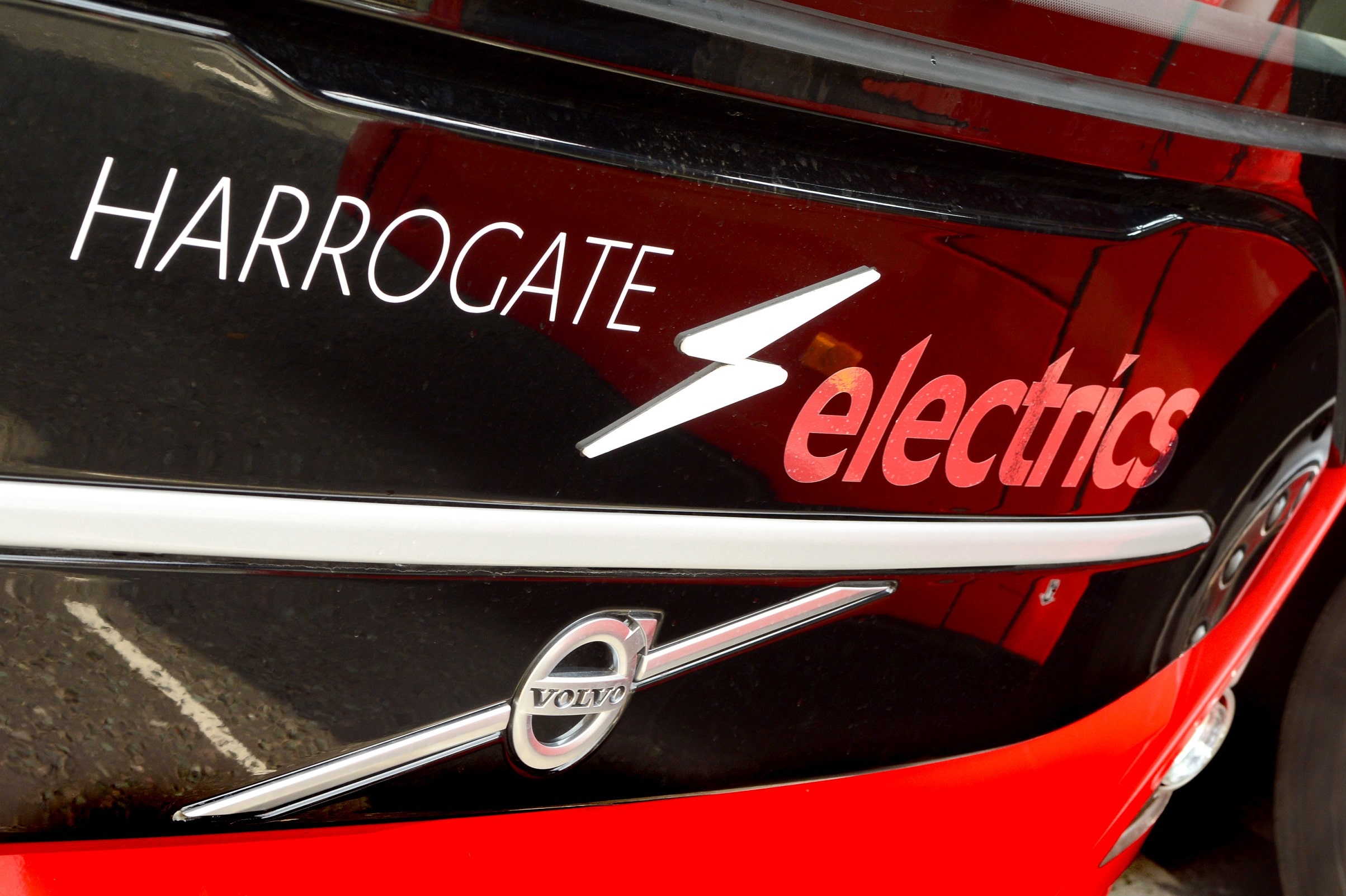
In addition to its announcement of ZEBRA standard track winners, the government has launched a consultation on setting a UK-wide end date for the sale of new non-zero-emission buses. DfT is seeking views on making such a move of between 2025 and 2032.
The latest consultation follows a similar exercise (applicable only to England) held in 2021 and represents a change in approach from that process.
The earlier work sought opinions on an end date for the sale of new diesel buses. DfT says that while responses were largely supportive of taking that step, views differed on the inclusion of diesel-electric hybrid vehicles in its scope.
However, those submissions, and dialogue with operators, vehicle manufacturers and other parties, have “enabled the refinement of proposals for progressing the end of sales of new non-zero-emission buses,” the Department says.
The new consultation is open until 21 May. Responses can be submitted via email or by post to the address laid out in the published document, which also includes opens a promised call for evidence on setting an end date for the sale of new non-zero-emission coaches, and similar work for new non-zero-emission minibuses. DfT will respond to the consultation within three months of its closure.




















